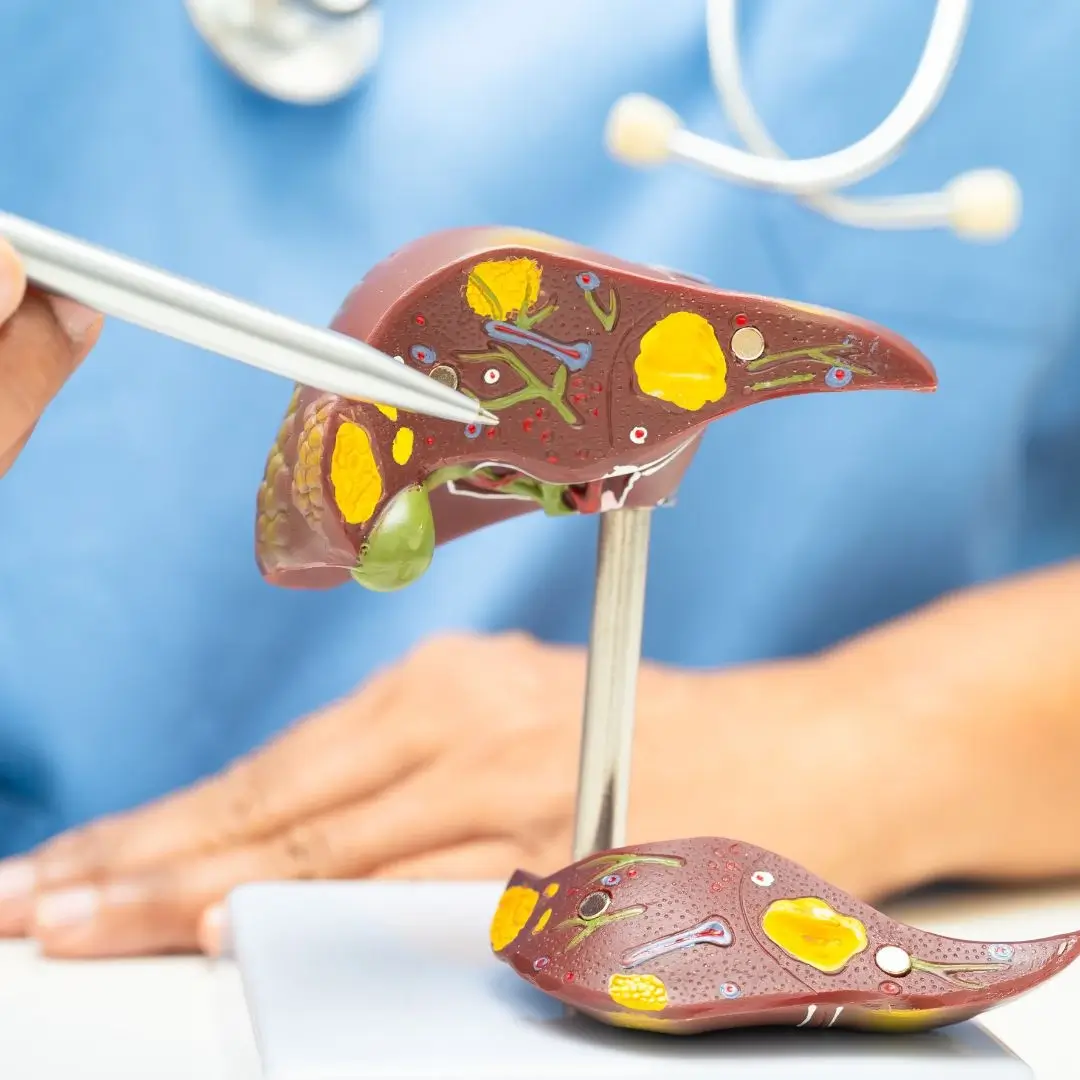Frequently Asked Questions
Cirrhosis is scarring of the liver tissue due to long-term liver damage from hepatitis, alcohol, or fatty liver disease.
Common causes include chronic hepatitis B or C, alcohol abuse, and nonalcoholic fatty liver disease.
Symptoms include fatigue, jaundice, swelling in the legs, abdominal bloating, and confusion.
Cirrhosis is generally not reversible, but early treatment can slow its progression and manage complications.
It is diagnosed through blood tests, imaging (like ultrasound or FibroScan), and sometimes liver biopsy.
Complications include ascites, variceal bleeding, hepatic encephalopathy, and liver cancer.
Treatment focuses on managing the cause and complications, including medications, lifestyle changes, and sometimes liver transplant.
No. Alcohol should be strictly avoided to prevent further liver damage.
In advanced cases, liver transplant may be the only option for survival, especially with liver failure.
A low-sodium, protein-balanced diet with plenty of fruits, vegetables, and fluid restrictions is often advised.
Fluid retention can be managed with diuretics, salt restriction, and sometimes paracentesis.
It is a complication of cirrhosis that affects brain function, causing confusion and altered consciousness.
Yes, some medications can be harmful to the liver and should be avoided or adjusted by your doctor.
No. Cirrhosis can also result from viral hepatitis, autoimmune liver disease, or metabolic conditions.
Regular monitoring every 3 to 6 months is recommended to detect complications early.

